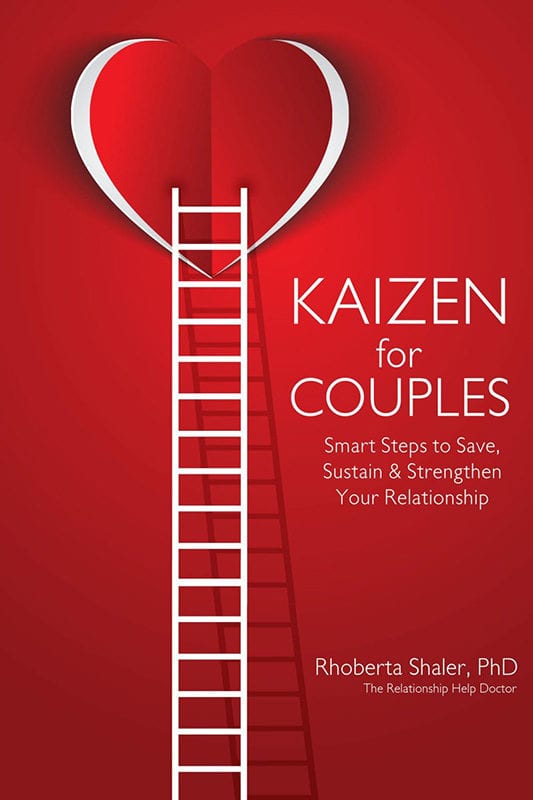
What are hijackals and how can you deal with them? In this episode, Scott Carson talks with Dr. Rhoberta Shaler from TransformingRelationship.com about overcoming toxic relationships and how to work with or avoid these hijackals that can sabotage things. Dr. Shaler’s main goal is about empowering partners, executives, and adult children from the relentlessly difficult, toxic people she calls hijackals so they can recognize them, stop the crazy-making, and end the emotional abuse.
—
Watch the episode here
Listen to the podcast here
Overcoming Hijackals With Dr. Rhoberta Shaler
Many of you guys are out there doing amazing things and rocking the entrepreneurship journey out there. Many of you are doing it solo. Some of you guys are doing things differently than what your tribe has known you for. A lot of times, you’re diving into real estate investing as a side hobby, looking to make it a full-time hobby. Let’s face it. Sometimes, people that are closest to us don’t always understand what’s going on or may not be the most supportive. I’m excited to have my friend, Dr. Rhoberta Shaler, join us on this episode of the show.
Dr. Rhoberta and I are friends from the New Media Summit that I attended. She is known as The Relationship Help Doctor. She’s a relationship consultant, speaker, and author. The Relationship Help Doctor provides urgent and ongoing care for relationships in crisis. Even the United States Marines have sought her help. She empowers the partners, execs, and adult children of the relentlessly difficult, toxic people she calls Hijackals to recognize and stop the crazy-making to end the emotional abuse to save their sanity. She’s the author of sixteen books including Escaping the Hijackal Trap and Stop, That’s Crazy-Making!. She hosts two podcasts, the Transforming Relationship with Emotional Savvy and Save Your Sanity: Help for Toxic Relationships. Her YouTube channel for relationship help has reached over 270,000 views. We are honored to have you on the show.
Thank you. I’m excited to be here because in every industry, we’re going to meet those that I call, “Relentlessly difficult people.”
Everybody’s got somebody in their family, a co-worker, or somebody in their circle of influence that is difficult. What would you say is one of the best ways to either identify or maybe working with those difficult Hijackals?
First of all, let me tell you what a Hijackal is so that we are all on the same page. I created and trademarked that term, Scott, because too many people were going to the internet and they’re saying, “This is happening in my relationship.” They forgot that the internet is an index, not a mental health professional. When it spit back, narcissists, sociopaths, psychopaths, borderline, or whatever, “No. I don’t want that happening,” because you’re in a relationship with them. You don’t want to be separating yourself in that way with the diagnosis.
I wanted to term that we could all talk about the patterns, traits, and cycles of these people without a psychological diagnosis. That is not necessarily helpful. That’s why Hijackals. How you’re going to recognize you have one is that no matter what you do, what you say, what you want, they have to win. They have to be right. They have to be the one who knows. Haven’t you had that experience with somebody over and over again? You know very well, you told them something that they couldn’t possibly know and they say, “I knew.” That person that you are having a conversation with and you think, “I’m going to step in. I’m going to agree with them.” As you agree with them, they turn the tables and say, “It’s silly, don’t you think?” There you are, left hanging. This happens so frequently. People who have to win, people who go off like a Roman candle, out-of-proportion emotions. People who engage in black or white thinking like you’re the best thing that they ever found and then you look at them sideways and now you’re the worst person on the earth. No gray areas. Things like that.
We all have some of those horror stories, people we want to run from in the best case we can. It’s hard, especially if somebody’s black or white. One minute, you think they’re one way, the next minute completely opposite. You’re left, “This is not the person that I know or the person I’ve met.”
They love to do that because it gives them power over you. It makes them able to control the conversation or so they think. It’s what they want. If you’re talking to a true Hijackal and they need to win at the moment, they will say, “Black is white.” Five minutes later, they need to win at the moment and they’ll say, “Black is red.” When you say to them, “Five minutes ago, you said black is white.” They say, “You don’t listen very well. Do you?” Now it’s my fault. I can’t even fact check because there are no facts. Many of us have probably seen on television where they’ll roll a piece of tape and somebody says something and then somebody says, “I never said that. The media has it all wrong.” That’s what happens.
What would you recommend to people, readers, Note Nation out there on some of the best ways to handle that? Walk away from the situation? Hold your ground? Take it with a grain of salt, and move on? What are some of the ways that you talk with your clients to help them overcome the obstacle?
It depends on how close the relationship is. If you’re going to buy a car, that’s a one-time relationship. You’re going to have a conversation. You’re going to get what you want. You’re going to hold your ground or you’re going to leave. Somebody that you want to work with repeatedly or you’re in the middle of a deal with or negotiation or you’re trying to help and they’re getting in the way of you helping them. What’s important then is to be able to lean in and go, “I need to observe this. I get this feeling. I feel twisted and hung out to dry. What happened?” You need to sit back and be a little reflective about that.
If it’s a relationship that you need to develop further, then I always suggest to lean in, ask questions, and become more neutral. I’ve written sixteen books and one of them is called Kaizen For Couples. It has couples on the cover, but it’s for every relationship in your life. In there, I gave one of the strategies that I created. It’s called the Personal Weather Report. For us to be assertive, which is our absolute right, is to know that we have the right to say what we think, feel, need, or want. As long as we’re only talking about ourselves and never mentioning another human by name or pronoun.

Kaizen for Couples: Smart Steps to Save, Sustain & Strengthen Your Relationship
You have that absolute right. This is what I think. This is what I feel. This is what I want. This is what I need. Start by speaking only of yourself, saying what you think, feel, need, or want with no reference to any other humans. That’s always a good place. For me, this is the best way for me to go, “When I was in that situation, I thought this way.” You’re only self-referential. When you back off to that place, maybe they won’t improve, but you will. You will have improved your engagement in that relationship. That’s important.
If you know it’s going to be a heated argument or heated conversation, what are some ways to help alleviate that? Especially with us buying debt or buying mortgages. A lot of people out there were often dealing with borrowers who haven’t paid in a year or a couple of years. They may be very nervous or very stressed out because they’ve lost their job or things like that. What are some tips that you might give to us out there to be able to help that?
The best thing to do is always to acknowledge their feelings. “I know this is a difficult time for you and I know that you can be stressed.” Always name it, because that helps the other person go, “You get me.” The second thing is to say, “I’m here to help you. Maybe you’re not going to like everything I have to offer. Maybe it’s not the things that you most like to do. As a professional, I want you to know I’m here to help you. Here are my advised next best steps.” You jump in with them. Don’t create distance at that stage. Sometimes, you have to for a little while. In the beginning, you jump in with them and you let them know, “I get you. I see you. I hear from you. I know that.” That allows them to relax.
You can identify that you’re on the same level, not above them, and you’re trying to come to a resolution of some sort and take it down a little bit.
By the time they get to you, they believe everybody’s out to get them and nobody wants their best interest. Nobody’s on their side. They come to you because they have to. They’re at the end of their rope perhaps, and they’re already in this super-cautious way. When you take that extra two minutes, that’s all it takes at the beginning of each conversation to say, “How are you doing? I know this is tough. I’ve had lots of people in your situation. For every one of them, it’s been stressful. It’s been frightening, and all. I’m here to walk through with the least effort possible.”
Working with the Marines. How is that? Is that a stressful, testosterone-filled environment a little bit?
There’s a lot of estrogen in the Marines too, but I know exactly what you’re referring to. I’ve done a lot of training for the Marines. When I’m called in to be a consultant, it’s usually because a small team has come together. It has analogies to your business too, because you’ll have enlisted personnel. You’ll have noncommissioned officers, commissioned officers, retired military, civilians, consultants. They’ll all be in this one small group. They’re all operating from a different framework. They’re supposed to communicate and get a job done.
That’s where I help them. I help them come together, find the strategies, work together, learn how to talk well and problem-solve, do that. That’s how it applies to them. Every now and again, there is a Hijackal. What a surprise. I had a client approach me years ago and he said, “I’ve gotten out of the military. I honestly believe that I was trained to be a sociopath. I need your help.” When I inquired with him, he felt like he was supposed to have deadened all his emotions, all his feelings, and go do the job. To a degree, that’s absolutely right. He said, “I need to be balanced back out again. I need your help.” Whether it’s an individual in the military or a team, that’s how I can help them. There are Hijackals. What’s a better place to automatically be told that you’re going to have power over other humans? They can’t question your word or your methods.
Bringing people together, I imagine you do a lot of work with different companies out there, teams, and companies trying to get them to coordinate work together too.
I’ve done a lot of that. As a professional speaker, I used to do that whole thing. If it’s Thursday, it’s Detroit, that thing, helping companies do that. When I’m helping companies, unless there’s a severe interpersonal issue I have to be present for, I do it this way. I do it by video conferencing.
What are some of the best ways to help people overcome those divides or those difficult situations of trying to get a team to work together? We can all agree, when a team works together, things are rock and rolling. They’re all rolling in the same direction. If they’re going in different directions, what’s the best way to get them to start moving in the same direction towards the same goal?
First of all, make a list of your commonalities. These are the ways we’re the same. These are the ways that we want the same outcome. This is our goal. Get people invested in the creation of the goal or the framing out of the goal, the outcome. Get them invested in how to do it. There’s one organization that I worked for. It was a small group of nine people. They have different ways of perceiving the world. When I started to realize that we had these people who were deeply-feeling people and people who didn’t care very much for other humans.
All of this, getting them to be invested and engaged with the outcome that they wanted was the only way that we could do it. That we could keep saying, “Yes, but let’s get back to where we’re going. Let’s stay on board with the process.” Because they wanted to popcorn all over the place, but I want it my way. It won’t work like that. Tell me your best offer to do this work and we’ll take that into consideration, but it isn’t my way. It’s our way. We’re going on this path to this goal and that redirection, is important.

Overcoming Toxic Relationships: True partnership means true consultation. The communication has to stay open.
What would you recommend to entrepreneurs out there, people that don’t have their spouses or might be difficult to deal with? May not be on board with what they’re trying to do?
That’s a generalized issue. When we’re going to make a shift in what we’re doing or we want to go down a new path. It’s best to prepare that pathway before we say, “Jump on this with me,” or, “What’s wrong with you?” In your relationship, you always have good communication. I don’t like to say that because it sounds so rudimentary, but that communication is open. You’re safe and you can trust each other with your thoughts, feelings, needs, and wants. When you say, “I’m entertaining this idea. It feels good to me. I love your thoughts on it.” You get engagement, then you get, “We’re in this together.”
If you come home and you say, “Babe, I’m going to do this.” Babe is not going to be too happy because, “What am I, chopped liver? We’re not in this together?” Always remember that true partnership means true consultation. That communication has to stay open and you need to know you have the skills to resolve any issues that can come up. If you have a partner for instance, that runs away from conflict and the other person is in pursuit and saying, “We need to settle this.” The other one is going, “I’m going to go to sleep.” You got to get some help.
I work by video conferencing a lot and work with partners who may be even separated. They were once gone to stay with a friend for a week because they’re so frustrated with the other. We can talk and then we can find common ground. We can find the way that it works for both people. If you don’t have that communication to start with, that is your starting point. Engage each other in your values, vision for your life, beliefs about everything that don’t just mean spiritual beliefs. How money is best used, how the world works, how we get along with other humans. All the things we need to be on the same page with. What are our next best steps? Engage each other in that as a team.
What your goals are and where you want your life to look like is a key component.
Life intervenes, particularly for young people. They’re on a path. They’ve got a little cultural script. You go get some job or training, go to college, or whatever you do. Find a job and be independent. Buy a car and get a relationship. Create a family, get a mortgage, and do all of that. You wake up and you find you’re not even talking to each other. That person at the other end of the dinner table is like, “Who are you again?” I’m so busy, maybe with children, with work, trying to make money. The pressure is here and there. Trying to move forward in the community. Trying to have a little fun maybe and maybe we don’t have the same sense of what we want to do. We each go. One goes to the gym. The other one goes to watch the game. Whatever happens. We lose that contact. That person’s going to be at the other end of the dinner table when the children are all gone. You’re going to look at each other and you’re going to say, “What happened?”
“I don’t know you anymore.”
“We lost each other somewhere along the way and we’re so far apart. Can we get back together?” Don’t lose that. Become interested in your partner. One way to do that is, don’t ask your partner, “How was your day?” Ask your partner, “How did you feel about your day?”
That touches a whole different level, an emotional question to draw out and saying, “It was great, good, bad.”
Stick around for the response like, “We’ve got this whole thing. Don’t we?” “How are you doing?” “Fine.” You keep on walking. If someone says, “How are you doing?” You say, “My dog died this morning.” They say, “Good. See you.” We’re not listening. In your partnership relationship at home, be the person who’s present and listening. Don’t ask a question you don’t want the answer to. If you are not emotionally mature enough to ask a question that you can’t handle a yes or no answer, don’t ask the question. Because you’re going to end up making your partner wrong. Emotional grownups ask questions equipped to hear yes or no and take in the information and then maybe ask another question or understand something. If you only ask questions that you want a yes answer to and then you say, “Why not?” Already, it’s on. You don’t want to do that. Take enough time.
I’ll give you an example. I had this couple. They ran a business together. They’re together 24/7. They have four kids in school. They came to me and they said, “This isn’t going well.” After a few sessions, I said, “Here’s your homework. Twice this week, I need you to take 45 minutes. No TV. No kids. No nothing. Be together.” They had a hot tub. They had a beautiful big home. They chose the hot tub. “We’ll sit in the hot tub and we’ll talk together as though we care about each other and are interested in each other.” They came out the next week and I said, “How was the homework?” They said, “Who has time for that?” I fired them. I said, “You come back and see me when you truly want to improve your relationship.” That’s the wrong response. If you can’t find two 45-minute periods out of 168 hours in a week for each other, you’re not ready to fix your relationship.
Do you think every relationship is fixable?
No, it isn’t. If you have a Hijackal relationship, the chances are the Hijackal does not believe there’s anything wrong with the relationship. They highly believe there’s something wrong with you. They’ll be happy to point out every fault you never had. Those relationships are a whole other situation. Maybe people who didn’t have a very good attachment in their families, were well-bonded, well-welcomed, had trauma in early life, were stressful, were neglected, were abused. Maybe you don’t even think of it as abuse when they tell you, but it affected them deeply if to work through those things. You need to do it for yourself. Sometimes, you won’t do it for yourself because you wait and maybe you’ll do it for the relationship. Those are wonderful. That’s when we can move to a place where both people say, “I had no idea it could be this good.”

Overcoming Toxic Relationships: Hijackals will very seldom go find out what’s up with them because in their minds, there’s nothing wrong with them.
Do you think that the use of smartphones, social media, text messaging has eroded a lot of our relationships or a lot of people to go off half-cocked a little bit? Because of the communication of body language and eyes and things like that is lost with social media and text messaging.
I do. I was working with a couple and the fellow had not responded to the woman’s text. They’re in a tight marital relationship. It was six hours. I said to him, “How could it possibly be that you don’t have ten seconds to say, ‘Really swamped up right now, babe. Get back to you in a while.’” He looked at me and he said, “Would that be all it took?” I said, “Yeah, because you made her important in your life. She’s a person. You were saying, ‘I don’t care. You can wait. What I’m doing is way more important than you.’” For that ten seconds to say, “No, you’re important and I’ll let you know.” For her, my advice was, “You need to trust this guy. Trust that he makes good decisions. Trust that he makes wise decisions. He’s using his time for the best of what he needs to do. If he doesn’t get back to you immediately, go into the trust.” With those two things that they could do, they thought, “That makes sense. We could do that.”
I always crack up as I see the escalation in Facebook groups with people not agreeing these days. I feel like we’re very hot-tempered. I’m right, you’re the wrong aspect out there. Social media fans the flames for that quite a bit there.
It does because it depersonalizes it. They don’t know you. You friended each other, but you have no clue who this person is. You’re in the same group together and you have no idea except that you have some interest in common that got you into the group. This depersonalized way gives people permission to let their dark side out. What they wouldn’t say to you if they met you and we’re in a group having this conversation in a seminar room. They feel free to spit it out because they don’t think there are any consequences. You can’t remember until I tell you what to remember, but the research shows that the number of Hijackals is on the increase significantly.
The thing about Hijackals is they will very seldom go find out what’s up with them because in their minds, there’s nothing wrong with them. What we know is the number of diagnosed people is going up at an alarming rate. Imagine the number of undiagnosed people with Hijackal traits, patterns, and cycles. When they get into a group and they can be depersonalized, they love the cut and thrust. You respond to their nastiness and they say, “You’re too sensitive.” They start using derogatory terms. It’s an outlet for all the anger, resentment, hate, and shame that they feel. They want to dump it all over other humans. Hijackals in that situation makes things very difficult.
I was in the Metropolitan Museum of Art in New York. I was in the Greco-Roman Hall. It goes on forever, the ceiling. The place was full of artifacts. I took a photo of four people sitting on a bench, all independently on their phones. I tried to pretend that they were listening to a guided tour of the Greco-Roman Hall, but as they never looked at the artifacts, I had to disabuse myself of that notion. They were in their worlds in the world. You lose a lot that way. Imagine the number of people who are walking down the street on the phone. They’re not even making eye contact or smiling at other humans. What does that do to the richness of our appreciation of being in the community? It depletes it. Like other people don’t matter.
What I’m doing is the only thing that matters. You get into a women’s wear store and there’ll be three people on their Bluetooth having loud conversations with other humans while you’re in a store that’s not that large. Does nobody in the store culture matter, only you and your conversation? I had the experience one day. One woman was yelling into the phone. I said, “We can all hear your conversation.” She said, “I have every right to do whatever I want. This is a public space.” I said, “Yes, you do.” She got back on the phone and she said, “This jerk just told me this,” in the same loud voice. That’s the separation that we’re creating, the divisiveness. Make sure nobody in your family has a cellular device at the dining table.
That’s one of the big things. I grew up in a big family. Dinner table before cellphones. Everybody is going around communicating. Nowadays, I see a lot of people don’t have that. They’re sitting down on the TV or they’re on their phones and doing different things. They’re eroding those relationships.
It’s such a waste because you’re present with other humans and you can have that full-on communication. We’re getting fearful about having full-on communication because we speak in shorthand, we speak in emojis. We have enormous risk doing that. I teach negotiation in the MBA program at the University of Texas at Dallas. I tell my students, “Emails are for congratulations, affirmations, and confirmations.” Like to say, “I heard you say this in the hall. Do I have that right? I want to affirm that we’re going in this direction and the plans are this way. Congratulations, that was great. I loved what you contributed to the meeting.” The rest is how I meet in person.
More and more people don’t want to do that. They’d rather do it electronically or text message and you miss out on a lot of that interpersonal behavior and connection. It is the most important thing in that.
You can have meetings like we’re having. We can see each other fully. You know I’m not on my cell phone. I know you’re not on your cell phone. That’s very clear. We can be working from home and have meetings like this. The thing is that we start using text or email and nobody knows. I use this example in some of the training so we can have a bit of fun with it. I put on a piece of paper six words. The words are, “I never said I dated Leslie.” Put that in a text message. Does it mean, “’I’ never said I dated Leslie.” “I ‘never’ said I dated Leslie.” “I never ‘said’ I dated Leslie.” “I never said ‘I’ dated Leslie.” “I never said I ‘dated’ Leslie.” “I never said I dated ‘Leslie.’” Which one does it mean?
When you read that and you think you know what it means, and you assume what it means. You go off in a direction and it could be 180 degrees off what the person meant. If we’re responding to people without checking, we’re making the assumption that we know and then we say, “You said it. I got it in a text.” We’re going off the rails. We’re not going to have communication. We’re not going to have healthy relationships. If you don’t have healthy relationships, you never get validation. You never get respect.
In my book Kaizen For Couples, I talked about the five relational gifts. We need to have honesty, safety, trust, respect, and reliability. If we don’t have them, we’re not going to have a healthy relationship. When we have honesty, safety, trust, respect, and reliability, that gives us three hallmarks of a healthy relationship, which are equality, reciprocity, and mutuality. If I am not engaged, not speaking person-to-person, not taking time to be present, if I’ve always got my head on future pace even though I’m sitting here now glazed over I’m missing the opportunity. This is the only moment there is.

Overcoming Toxic Relationships: No matter what someone says, believe their behavior.
You and I are never going to have the same moment in time. We’re choosing to spend it together to create something. If I were on my phone or we weren’t doing this by video and I’m answering you, but you can tell that I’m also answering email, we miss it. To go back to our primary relationships in life with our family, if we’re not 100% there, we miss it. The last thing you want to do when your kids are all gone is to say, “I wish I’d gone to the game.” It’s too late. “I wish I had Friday date night with my wife or my husband. I wish I had settled in and had more cuddly evenings.” They’re gone. Was it so important that you get out that email or that you go to whatever? Calibrate what’s important. Calibrate what’s in your value system and behave accordingly.
I have two things that I tell people. These are the two most important things I could teach them. Number one, “The truth is what you do and the piece that goes with it is your behavior, your belief.” Therefore, no matter what someone says, believe their behavior. When you have quiet moments with yourself, ask yourself, “If my behavior is my belief. Is that the way I want it?” Make a change. Making the decision that you’re not going to get what you think you want by being on the path you are. If you say you want closeness with someone then spend time with that someone.
Put the phone down, close the computer, and be in your moment with that person. It’s a huge thing and that’s good not only for spouses but like you said people in the workplace. People you’re working with, be present, accountable, and be who you want to be.
Think of where we were at the New Media Summit. If we’d all been on our phones, we would have missed all those connections. All of that wonderful time. The fun, dancing, joy, food. We would have been too busy. For those of us who said, “Minimal work. Totally present here.” We had a different experience than the people who were not sitting in the session, sitting outside. Being on their computer, being on their phone, doing all of that. They lost something. It’s always a good choice.
What’s the best way for people to get a hold of you to find out more about what you do or to see about working with you and having you help them out?
Go to my website, TransformingRelationship.com. If you want to be my client, I’ll make it simple for you. I have a one-hour full session offering to try me out for only $97 and you go to BeAClient.com.
Thank you so much for joining us. It’s great to catch up with you.
Thanks for inviting me to be your guest.
I’m honored to have you, such great nuggets out there and some good tools. I highly encourage you out there. Take the time, check out the website, check out our YouTube channels, and schedule a time. Maybe there is a way to overcome your Hijackals and then be a better person and a better relationship there for you.
It may be a Hijackal trait, but not a Hijackal person so they need to know that.
Go out, take some action. Trust me. The more you do, the more you can do to make your relationships better, the easier life gets. That’s one of the best ways to do things. We’ll see you at the top.
Important Links:
- Dr. Rhoberta Shaler
- Escaping the Hijackal Trap
- Stop, That’s Crazy-Making!
- Transforming Relationship with Emotional Savvy – Dr. Rhoberta Shaler’s podcast
- Save Your Sanity: Help for Toxic Relationships – Dr. Rhoberta Shaler’s podcast
- YouTube – The Relationship Help Doctor’s YouTube channel
- Kaizen For Couples
- BeAClient.com
- https://Youtu.be/V9UEfCIcaKc – Overcoming Hijackals with Dr. Rhoberta Shaler
- http://TransformingRelationship.com
About Dr. Rhoberta Shaler
 Relationship consultant, speaker and author, Rhoberta Shaler, PhD, The Relationship Help Doctor, provides urgent and ongoing care for relationships in crisis. Even the United States Marines have sought her help!
Relationship consultant, speaker and author, Rhoberta Shaler, PhD, The Relationship Help Doctor, provides urgent and ongoing care for relationships in crisis. Even the United States Marines have sought her help!
Dr. Shaler empowers the partners, exes, and adult children of the relentlessly difficult, toxic people she calls Hijackals® to recognize and stop the crazy-making to end the emotional abuse and save their sanity.
Author of sixteen books including Escaping the Hijackal Trap and Stop! That’s Crazy-Making, she hosts two podcasts: Transforming Relationship with Emotional Savvy and Save Your Sanity: Help for Toxic Relationships. Her YouTube channel, ForRelationshipHelp, has reached over 270,000 views.

